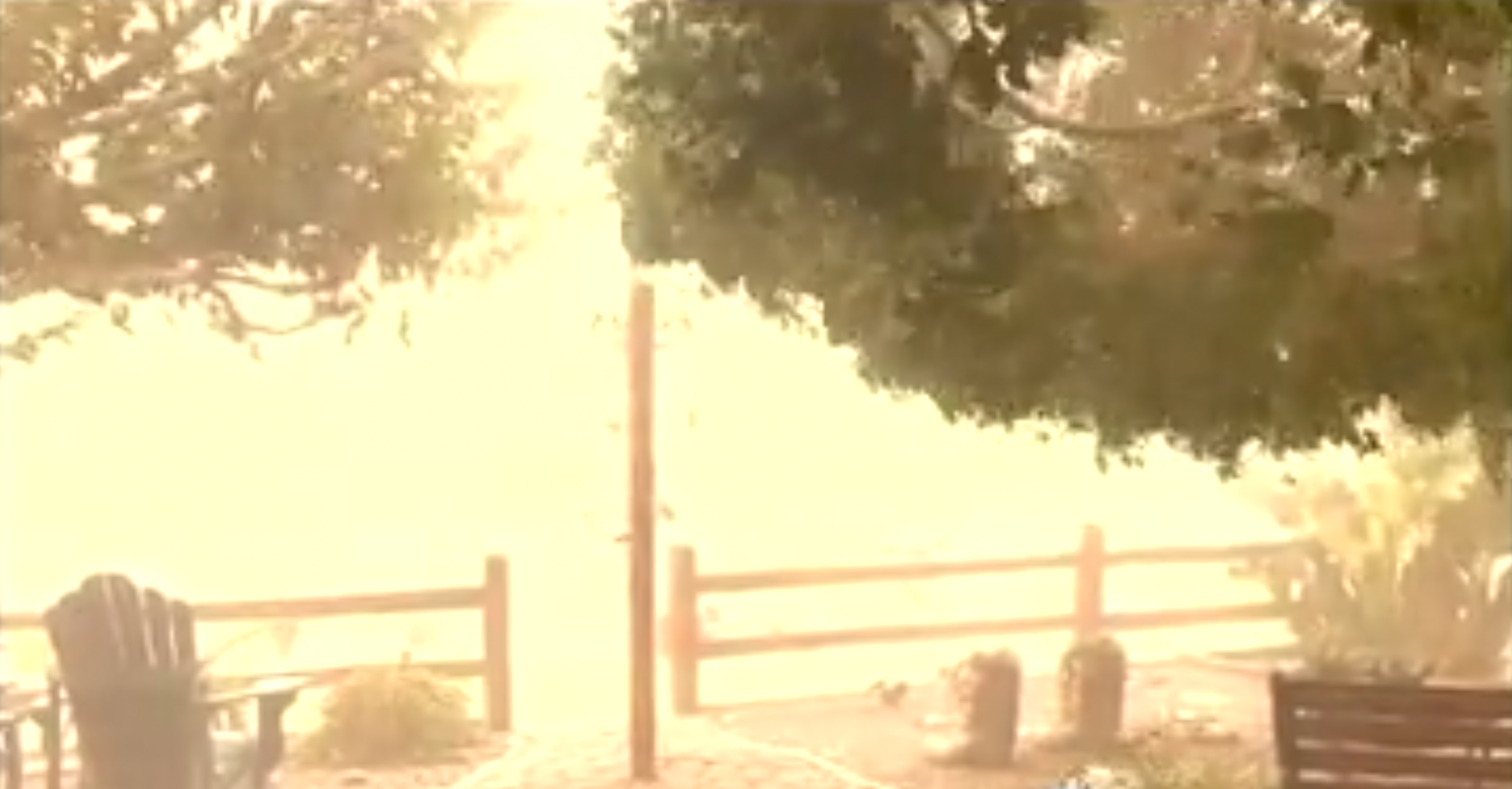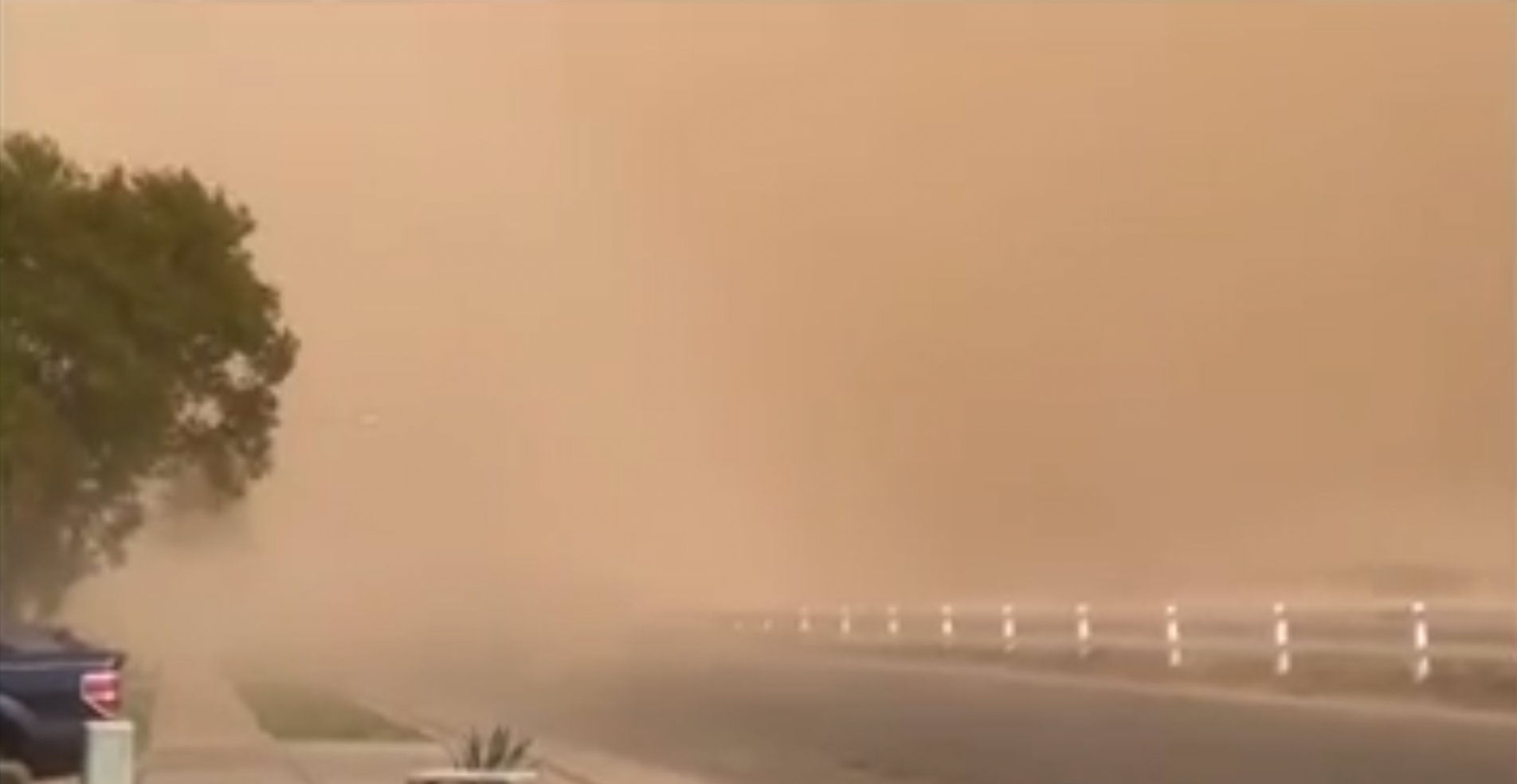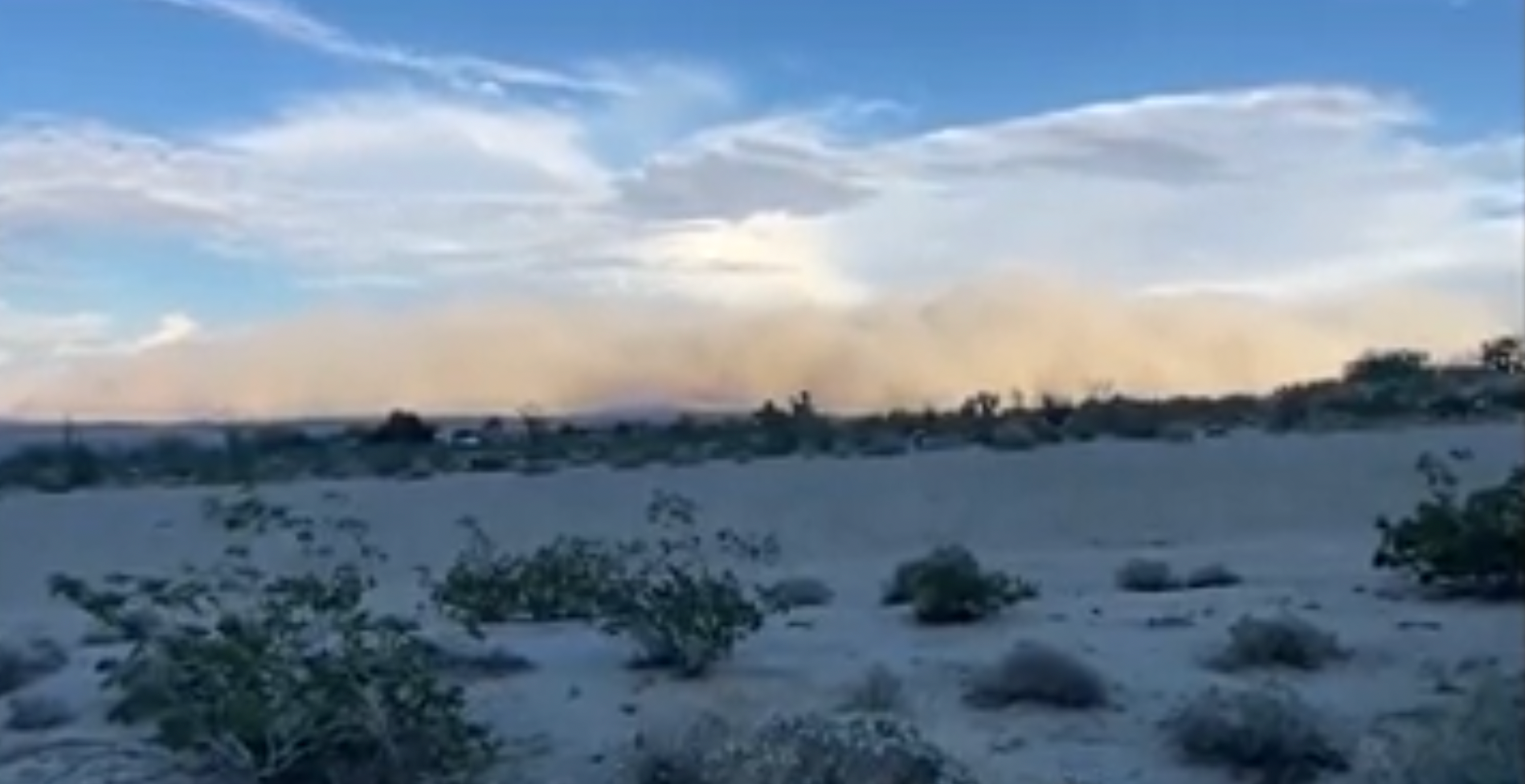Photos show ‘blinding, choking’ dust storm consuming southern California
Dust storms can be caused when nearby thunderstorms produce heavy winds that kick up dirt
Your support helps us to tell the story
From reproductive rights to climate change to Big Tech, The Independent is on the ground when the story is developing. Whether it's investigating the financials of Elon Musk's pro-Trump PAC or producing our latest documentary, 'The A Word', which shines a light on the American women fighting for reproductive rights, we know how important it is to parse out the facts from the messaging.
At such a critical moment in US history, we need reporters on the ground. Your donation allows us to keep sending journalists to speak to both sides of the story.
The Independent is trusted by Americans across the entire political spectrum. And unlike many other quality news outlets, we choose not to lock Americans out of our reporting and analysis with paywalls. We believe quality journalism should be available to everyone, paid for by those who can afford it.
Your support makes all the difference.A huge dust storm swept through southwest California on Thursday, darkening the skies and sending waves of dust over roads, buildings and homes in the afternoon.
The dust storm — also known as a haboob — blanketed parts of Imperial, Riverside and San Diego counties, creating low visibility and sometimes dangerous driving conditions.
Photos show the storm’s towering dust clouds looming over the landscape, covering the ground below in a hazy yellow shroud.
“Use extreme caution in you’re in the desert this evening!” the National Weather Service (NWS) warned.
Dust storms like this form from winds generated by nearby thunderstorms, explains NWS. The dusty front of the storm can be “miles long and several thousand feet high”, they add, and often hit without much warning — making driving in this impenetrable cloud extremely dangerous.

“Blinding, choking dust can quickly reduce visibility, causing accidents that may involve chain collisions, creating massive pileups,” the agency warns. “Dust storms usually last only a few minutes, but the actions a motorist takes during the storm may be the most important of his or her life.”
A thunderstorm around Yuma, Arizona, created the winds that kicked up dust in California on Thursday, reports the Palm Springs Desert Sun.
People from the Coachella Valley, home to Palm Springs and Indio, all the way down to El Centro, California, near the Mexican border, reported the effects of the large, sweeping dust storm.
The NWS office in Phoenix urged people to “postpone all travel until the dust settles.”

While the storm moved in quickly, rapidly creating zero-visibility situations, it also passed through rather quickly, with winds dying down in some areas within about 30 minutes, reports the Desert Sun.
Many places were left with a slowly dissipating hazy aftermath that lingered for a little while longer.
Other than some downed trees, there did not seem to be any major accidents, at least in the Coachella Valley areas, the Desert Sun adds.

Dust storms are a normal part of living in a desert, which this part of California is, but to form, they need wind, dry conditions and a lack of vegetation, reports The Washington Post.
As the climate crisis grows, some officials in the Middle East — where these storms are common — are worried that a hotter planet could make dust storms worse, the paper notes.



Join our commenting forum
Join thought-provoking conversations, follow other Independent readers and see their replies
Comments